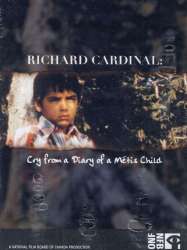Films with theme "Films about suicide", sorted by revenue
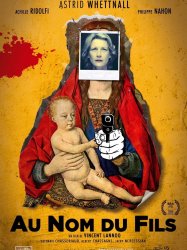
In the Name of the Son (2013)
, 1h20Directed by Vincent Lannoo
Origin Belgique
Genres Drama
Themes Films about children, Films about religion, Films about sexuality, Films about suicide, Films about pedophilia
Actors Astrid Whettnall, Philippe Nahon, Zacharie Chasseriaud, Lionel Bourguet, Jacky Nercessian, Albert Goldberg
Lorsque son fils se suicide après avoir avoué son amour pour un prêtre, sa mère décide de le venger en s'en prenant aux membres du clergé impliqués dans la pédophilie.

I Stand Alone (1998)
, 1h33Directed by Gaspar Noé
Origin France
Genres Drama, Thriller, Crime
Themes Films about families, Films about sexuality, Films about suicide, Serial killer films
Actors Philippe Nahon, Blandine Lenoir, Guillaume Nicloux, Frankie Pain, Jean-François Rauger, Olivier Doran
The history of the butcher, who doesn't have any other name, is narrated through voice-over and a montage of still photographs. Orphaned at a young age, he's sexually abused by a priest. As a teenager, he doesn't have the opportunity to study and learn a profession of his choice. So he reluctantly embraces the career of butcher specialized in horse meat, a profession already frowned upon at the time in France. After several years of hard work, he's finally able to open his own horse meat butcher shop, and his girlfriend gives birth to a daughter. But when the woman realizes the infant is not a boy, she leaves the young father alone with the child. Embracing it as fate, the butcher decides to take care of his daughter alone. But as loneliness grows on the single father, he becomes overprotective and develops incestuous feelings for his child. When he sees blood on her skirt, he stabs the man who he thinks raped his daughter. He later understands that the stains were only menstrual blood. He is sentenced to prison and forced to sell his shop to a Muslim butcher, and his troubled daughter is sent to an institution. In prison, the butcher has sex with a cellmate. Upon his release, he vows to forget it all happened. He finds a job working as a bartender for the woman who owns the tavern where he was a regular customer. They begin dating, and soon she becomes pregnant. As they start making plans for their future together, she sells her business and they move to northern France, where she said she would buy a butcher shop for him.

Anna Karenina (2009)
Directed by Sergueï Soloviov
Genres Drama
Themes Films about suicide
Actors Tatiaana Dorubitch, Oleg Yankovsky, Iaroslav Boïko, Sergueï Garmach, Aleksandr Abdulov, Lyudmila Maksakova

Sequoia (2014)
Genres Drama, Comedy, Romance
Themes Medical-themed films, Films about suicide, Films about cancer
Actors Aly Michalka, Joey Lauren Adams, Lou Diamond Phillips, Dustin Milligan, Todd Lowe, Demetri Martin
Le film raconte l'histoire de Riley, une jeune femme de 23 ans, pleine de vie mais atteinte d'un cancer, qui décide de se rendre au parc national de Sequoia, en Californie, avec l'intention d'y mettre fin à ses jours pour éviter la déchéance physique qui l'attend, en décidant elle-même de sa mort. Ses projets suicidaires sont pourtant mis à mal par sa rencontre avec un jeune musicien raté à la vocation missionnaire.

Wilbur Wants to Kill Himself (2002)
Directed by Lone Scherfig
Genres Drama, Comedy, Comedy-drama, Romance
Themes Films about suicide
Actors Jamie Sives, Adrian Rawlins, Shirley Henderson, Mads Mikkelsen, Julia Davis, Lorraine McIntosh
When Wilbur leaves the hospital after having tried once more to kill himself, the staff ask his brother Harbour to let Wilbur move in with him. The brothers thus share their childhood flat, next door to the bookshop their father left them. Uninterested in the family business, Wilbur works in a nursery. Harbour takes care of the shop and meets Alice, a mother who sells him the books she finds when working as a cleaner at the hospital. When she is sacked for always being late at work, she goes to see Harbour to explain why she won't be coming to the bookshop anymore, since she has no books to sell. Following his brother's advice on "grabbing" women, Harbour asks Alice to marry him. The wedding meal takes place in an Asian restaurant and allows Wilbur to get acquainted with Sophie, Alice's ex-colleague from the hospital. The two start flirting, but Wilbur pushes Sophie away after she licks his ear. He goes back home and slits his wrists in the bathtub. Harbour finds his brother just in time and Alice saves Wilbur by using towels to stop the bleeding. While discussing Wilbur with Alice, Harbour ends up telling her his brother feels responsible for their mother's death.
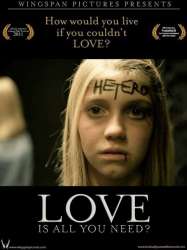
Love Is All You Need? (2011)
, 17minutesGenres Drama, Romance
Themes Films about sexuality, Films about suicide, LGBT-related films, LGBT-related films, LGBT-related film
Actors Darrel Guilbeau
Narrated by DiBenedetto, the short begins with the birth of the lead character, Ashley, her mothers, Karen (Levy) and Vicki (Lazar) at the scene. The story moves on where Ashley describes her early troubles of being an in-the-closet heterosexual. One event included a church sermon that rejected opposite-sex relationships except for reproduction; another detailed her playing house with her friends.
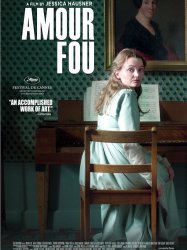
Amour Fou (2014)
, 1h36Directed by Jessica Hausner
Origin Austria
Genres Drama, Biography, Comedy, Romance
Themes Films about writers, Psychologie, Films about suicide
Actors Christian Friedel, Sandra Hüller, Katharina Schüttler, Hana Sofia Lopes, Holger Handtke
In Berlin the affluent Henriette Vogel (Birte Schnöink) holds a soiree where the poet Heinrich von Kleist attends. Heinrich approaches his close friend and cousin Marie (Sandra Hüller) and after telling her how living has become painful to him he asks her to consider dying with him in a murder-suicide pact. Marie declines.

Alfredo's Fire (2014)
, 40minutesOrigin USA
Themes Medical-themed films, Films about religion, Films about sexuality, Films about suicide, LGBT-related films, Documentaire sur l'homosexualité, Documentary films about religion, Documentary films about health care, Films about psychiatry, Films about disabilities, LGBT-related films, LGBT-related films about religion, LGBT-related film
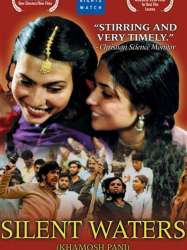
Silent Waters (2003)
, 1h39Directed by Sabiha Sumar
Origin Pakistan
Genres Drama, Musical
Themes Films about religion, Films about suicide, Films about Islam
Actors Kiron Kher, Shilpa Shukla, Aamir Ali Malik, Salman Shahid, Abid Ali
The story opens in 1979 in the village of Charkhi in the Punjab province of Pakistan. Ayesha is a middle-aged widow whose life is centred on her only son, the teenager Saleem, who is in love with Zubeida, a teenage village schoolgirl. Ayesha manages to support herself and her son with her late husband's pension and by giving lessons in the Qur'an to village girls. Generally well-liked and regarded, the only odd thing about Ayesha is that she refuses to go to the village well, having her neighbor's daughters draw water for her. Some villagers such as Amin, the postman, are troubled by the recent hanging of former prime minister Zulfikar Ali Bhutto by the new military ruler, General Zia-ul-Haq, who has promised to enforce Islamic law and encourages Islamic missionary and political groups to spread Islamism across Pakistan. Two activists from an Islamist group come to the village and, supported by the village "Choudhary" (landlord), start spreading their message of Islamic zealotry and gain recruits to fight the then-impending Soviet invasion of Afghanistan. The older men in the village react with disdain to their message of intolerance and puritanism, express cynicism at Zia's continual postponement of democratic elections and are angered when the activists accuse them of being un-Islamic and traitors. Although they struggle amongst the older village men, the activists soon gain a following amongst the village youth, including Saleem. With a mixture of cajoling and intimidation, the activists bring Saleem with them to a political meeting in Rawalpindi, where the speakers exhort their audience to commit themselves to jihad (religious war) for the creation of a true Islamic state in Pakistan. Drawn by their missionary zeal and call to serve Islam and Pakistan, Saleem, who wants to lead a more meaningful life than that of a simple village farmer, abandons Zubeida and grows estranged from his mother. Ayesha tries to discourage him from following the Islamists, but fails. Saleem participates in the construction of a wall to surround the girls school to "protect" them and enforcing a shutdown of village shops during namaaz (prayer) time, in line with Zia-ul-Haq's Islamisation. Both Ayesha and Zubeida are deeply alarmed at Saleem's transformation into an angry and hostile young man.

Near Death Experience (2014)
, 1h27Directed by Benoît Delépine, Gustave Kervern
Origin France
Genres Drama
Themes Films about suicide, Films about the labor movement
Actors Michel Houellebecq, Benoît Delépine, Gustave Kervern
Marié et père de famille, Paul, 56 ans, travaille sur une plateforme téléphonique. Cet homme terne et taciturne, buvant et fumant beaucoup, pensait que la vie allait s'écouler ainsi tranquillement, sans plus d'effort. Pourtant un jour, un vendredi 13, tout dérape. Après une bonne tournée dans un bar avec des collègues, rentré chez lui, il voit au journal télévisé un reportage sur les superstitions liées à ce jour, ce qui le renvoie brutalement au néant de son existence. Soudain déterminé à commettre un suicide, il part dans la montagne, sans rien dire à ses proches...
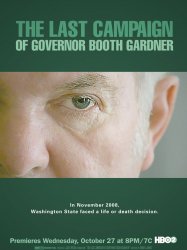 , 38minutes
, 38minutesDirected by Daniel Junge
Origin USA
Genres Documentary
Themes Medical-themed films, Films about suicide, Documentary films about historical events, Documentary films about politics, Documentary films about health care, Films about psychiatry, Films about disabilities, Political films

Asylum (2005)
, 1h39Directed by David Mackenzie
Origin United-kingdom
Genres Drama, Thriller, Romance
Themes Medical-themed films, Films about suicide, Films about psychiatry, Films set in psychiatric hospitals
Actors Natasha Richardson, Marton Csokas, Ian McKellen, Sean Harris, Dai Bradley, Hugh Bonneville
Asylum is set in Britain in the early 1950s. It tells the story of Stella Raphael (Natasha Richardson), the bored and unfulfilled wife of Max (Hugh Bonneville), a psychiatrist working at a remote mental asylum. Stella starts a passionate affair with Edgar (Marton Csokas), one of the patients. Edgar is particularly dangerous, having gruesomely murdered his wife in a jealous rage.
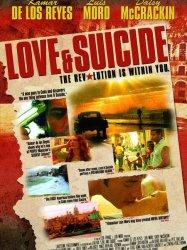
Love and Suicide (2005)
, 1h25Themes Films about suicide
Actors Kamar de los Reyes, Luis Moro, Daisy McCrackin, Sherri Saum
Tomas (Kamar De Los Reyes) lives in a vicious circle of life and death. To bury his grief over a lost love, he enters a world between dreams and reality; the path between love and suicide. Alberto (Luis Moro) peacefully swims with life, knowing life will never outlast eternal time; dreams and reality are the same. Tomas find himself in a world of history preserved in the present, where time has stopped, and souls rise beyond material surfaces. This world exists in Cuba. Nina (Daisy McCrackin) a modern day gypsy looking for her purpose in life, while Tomas keeps running from his. In a frantic moment, Tomas recalls the simplicity brought forth with Nina and the ultimate test of authenticity given by Alberto. In this moment, Tomas discovers the one thing between love and suicide.

My Suicidal Sweetheart (2005)
, 1h55Origin USA
Genres Drama, Comedy
Themes Films about suicide
Actors Natasha Lyonne, David Krumholtz, Tim Blake Nelson, Lorraine Bracco, Rosanna Arquette, David Paymer
From the moment he was six, Max wanted to die. He tried shooting himself, hanging himself and even throwing himself out of a window. But somehow, he always managed to survive. Exasperated, his parents have had him committed to a mental institution, where miraculously he's found something worth living for. Her name is Grace; she's a wild mental patient whose death wish is even stronger than Max's. But Max has a plan to save her. They're taking their marriage vows, 'til death do us part, and escaping the loony bin for the adventure of a new start. Max thinks Grace will be cured by visiting her mother, but he has to keep her alive until they get there. She tries overdosing on pills, running in front of a truck and jumping from a bridge, but luckily each time, Max comes to her rescue. Finally, he brings Grace to her mother and in a bizarre turn of events, the terminally ill oddball orders them to dig her grave. Mom says her goodbyes, but not before she tells Max and Grace that they both have something to live for—she sees a vision of their baby girl in Grace's tummy. It's more than the hope Grace and Max have been searching for; it's the wonderful beginning of a whole new life.
 Connection
Connection
